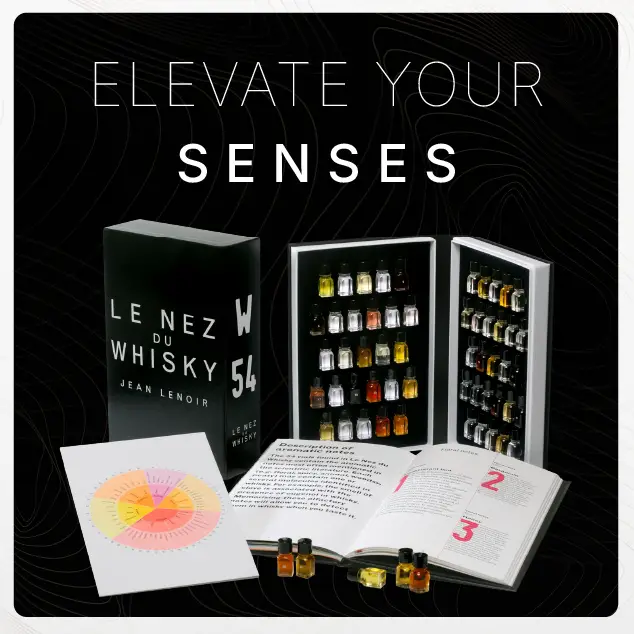
In the world of bourbon, age carries a certain mystique. The image of dusty old barrels resting in quiet rickhouses, slowly deepening in character, fuels the belief that older must mean better. Price tags often reinforce the idea, with 15, 20 or even 23-year-old bourbons commanding hundreds of dollars and glowing reviews. But is it true? Does more time in the barrel always lead to a better whiskey?
In this guide, we cut through the hype to answer the question: is older bourbon really better? Along the way, we’ll explore how bourbon ages, whether it can be too old, and what age range actually delivers the best balance of flavor and complexity. We’ll also answer the most common questions drinkers have about bourbon aging – from how long it lasts to the oldest bottles ever made.
Understanding Bourbon Aging: Time, Taste, and Tradition
Bourbon gets its character from time spent in new, charred oak barrels. Heat, wood, and time interact to give the whiskey its color, sweetness, and complexity. As bourbon ages, it absorbs flavors like vanilla, caramel, and spice, while also losing some of its harsh edges.
Legally, bourbon has no minimum aging requirement. However, if it’s labeled “straight bourbon,” it must be aged at least two years. If it’s under four years old, the label must state the exact age.
While age matters, it’s just one factor. The mash bill, barrel char level, and where the barrel sits in the warehouse also affect flavor. Some barrels mature faster than others, and some whiskey reaches its peak far sooner than you might expect.
Can Bourbon Be Too Old?
Yes, bourbon can absolutely age for too long. Unlike scotch, which matures slowly in used barrels and cooler climates, bourbon is predominantly aged in hotter and more humid climates. This causes the spirit to expand and promotes a higher level of interaction before whiskey and wood. As a result, bourbon gives the appearance (and flavor) of having been matured faster. The barrel influence is much more apparent early on than it would be in a scotch whisky. Over a long period of time, the wood can take over, often adding dryness, bitterness, and tannins that overshadow the spirit.
Most distillers agree that after about 15 years, bourbon risks becoming unbalanced. However, not all ultra-aged bourbon suffers this fate. Pappy Van Winkle 23 Year Old, for example, is widely considered a rich, elegant whiskey, not over-oaked at all. That’s the result of careful barrel selection, ongoing sampling, and knowing what profile the producer wants to achieve.
In short, older isn’t always better, but with the right management, it can be.
Why Older Bourbon Costs More – and Isn’t Always Better
Longer aging often means a higher price tag. Older bourbons are more expensive to produce due to evaporation losses, extended storage, and the rarity of barrels that age well over time. As a result, age often becomes shorthand for “premium,” especially on the label.
In the collector’s market, high-age and single barrel releases tend to command the most attention. These bottles are sought after for their scarcity, not necessarily their flavor. The optics of a high age statement can create the illusion that older is better, pushing prices up on the secondary market.
But great bourbon isn’t limited to double-digit age. Many younger expressions, especially from craft distillers, deliver exceptional character and balance. Age may impress, but it doesn’t always pour best.
What Age Is Best for Bourbon?

There’s no single best age for bourbon, but most distillers and drinkers agree that the sweet spot falls between 6 and 12 years. At this range, bourbon typically offers a good balance of oak influence, sweetness, and grain character.
Younger bourbons, around 4 to 6 years, often have bright, spicy notes but can lack depth. Older bourbons, especially those aged over 15 years, risk becoming overly woody or bitter unless the barrel has aged exceptionally well.
Many of the most celebrated bourbons (Elijah Craig 12, Eagle Rare 10, and Pappy Van Winkle 15) fall within this mid-age range. It’s where richness, balance, and drinkability tend to come together most consistently.
Common Bourbon Aging Questions Answered
How long are bourbons aged?
Most bourbons are aged between 4 and 12 years. Some budget options are younger, while premium releases can go well beyond a decade.
Can you drink 30-year-old bourbon?
Yes, but it might not taste great. After 20 years or so, most bourbon becomes overly woody and bitter. Thirty-year-old examples are rare and often more collectible than enjoyable.
Does bourbon go bad?
Unopened bourbon doesn’t spoil. Once opened, it can slowly change over time but remains drinkable for years if stored properly.
Is there a minimum age requirement for bourbon?
No, but to be called “straight bourbon,” it must be aged at least 2 years. If it’s under 4 years old, the label must show the age.
The Oldest Bourbons Ever Made

While most bourbon peaks between 6 and 12 years, a few outliers push the limits. The oldest known barrel-aged bourbon is Final Reserve, aged an extraordinary 45 years. Only 250 bottles were released, and it was considered more historic than drinkable.
More commonly, ultra-aged bourbons fall between 20 and 25 years. Pappy Van Winkle 23 Year and Michter’s 25 Year are standout examples, though availability is extremely limited.
Conclusion: Does Older Mean Better?
Older bourbon might seem more impressive, but age alone doesn’t guarantee better flavor. Great bourbon strikes a balance between grain and oak, richness and spice, and that can happen at 6 years just as easily as at 23.
While ultra-aged bottles can offer depth and rarity, many of the best bourbons are more modestly aged. The real key is balance, not age. Explore widely, try different expressions, and let your palate, not the number on the label, guide your judgment. In the end, the best bourbon is the one you enjoy most.
Read the full article at Is Older Whiskey Really Better?: Bourbon Edition
